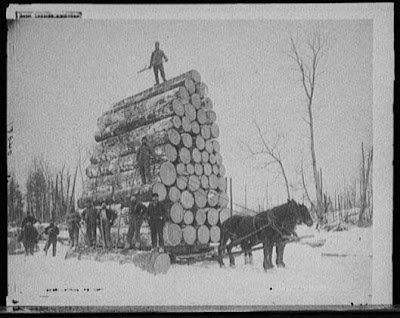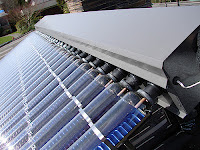A targeted package of support coordinated by the Kent Downs Area of Outstanding Natural Beauty (AONB) to support woodland owners and managers, biomass heating installers and fuel producers take full advantage of the expanding market for woodfuel.
Tuesday 24 July 2012
£8m Community Renewable Heat Scheme Opens
The successful Renewable Heat Premium Payment (RHPP) scheme has been extended to include an £8m fund for community led projects.
Community groups up and down the nation will be able to bid for a share of the fund to install low carbon heating technologies including solar thermal panels, biomass boilers and heat pumps into homes in their local area.
Community-based organisations including community co-operatives, voluntary groups, social enterprises and development trusts will be eligible to apply.
Community groups will need to submit a first stage application to the Energy Saving Trust by 7 September 2012.
Applications will be judged on a range of criteria, including the project’s vision, potential benefits for the local area, potential partners and any relevant experience of delivering similar projects.
The Department of Energy and Climate Change (DECC) expects to support between 50 and 100 projects with the £8million fund and will announce the winners in December this year.
Full details can be found on the Energy Saving Trust website.
The Kent Downs Woodfuel Pathfinder can provide free support for communities interested in biomass heating, both domestic and commercial. Please contact Matthew Morris on 01303 815 171 or matthew.morris@kentdowns.org.uk for more details.
Thursday 12 July 2012
Make your woodland pay its way
 |
| Over ambitious horse logging? |
Don’t miss out on a government funded scheme designed to turn pockets of unproductive woodland into well-managed money earners just because you are unsure of the process.
Mike Furness, Project Manager from Ngage Solutions for the Woodfuel Woodland Improvement Grant, has written a helpful blog with a step by step guide for potential grant applicants. It is published on the Ngage website.
Mike is keen to assist woodland owners, to take advantage of this opportunity to make their woods more productive. There is money available for ‘Roads’ or ‘Timber’ projects, and Mike will be happy to talk through proposals even before an application is submitted, helping candidates maximise their chances of success.
Ngage Solutions is administering the Woodfuel Woodland Improvement Grant (WFWIG) on behalf of the Forestry Commission in three regions: Cumbria, the South West and the South East. This grant is time limited, so act now to find out more about the scheme.
To find out more about Woodfuel WIG come and see the Forestry Commission at the APF show 13 1- 5 September stand G4.
Contact Mike Furness, Project Manager Ngage Solutions Ltd, on 01494 568970 or 07795 515 413, or by emailing mike.furness@ngagesolutions.co.uk.
Monday 9 July 2012
LC Energy - job vacancy
LC Energy is a leading UK renewable energy company based in the South East of England.
The company provides premium grade biomass solutions to commercial and public sector organisations including Heathrow and Stansted Airports, Hilton Hotel Group, Universities, hospitals, schools, care homes and private client estates.
LC Energy is looking for an experienced and self-motivated site supervisor with an HGV Class 1 driving licence for a full time position with the company.
Based around the Heathrow Airport area, the role requires site management skills, and the confidence and professionalism to communicate with the company’s clients and sub-contractors.
Experience of operating and maintaining a range of vehicles including tractor & trailers, articulated bulkers, hook lift systems, skip vehicles and telehandlers is an advantage for this role.
In return, we offer a competitive package with benefits and excellent career development potential in a fast growing business.
To be considered for the position, please send your CV together with an introductory letter to Nicola Hopkins on info@LCEnergy.co.uk.
Closing date for applications is 31st July 2012.
Friday 6 July 2012
RHI Update: New guidance for Applicants
 |
Based on these figures it appears that only around 57 applications have been successfully processed and are receiving payments (which hints at a huge backlog of around 543 applications, the majority of which are for biomass).
Ofgem acknowledge the popularity of the scheme and the fact that it is taking longer to process applications than anticipated. Most importantly Ofgem have highlighted the issues they have found with heat metering under the scheme. In response a range of new guidance materials have been made available (see below).
Heat metering issues
Ofgem has conducted a series of early site audits of RHI installations which have revealed significant problems with most installations having errors in their metering arrangements (which need to be rectified before installations can be accredited to the scheme. Common issues identified include:
- Meters are not installed according to manufacturers’ guidance (e.g. the meter orientation is incorrect; the meter is installed too close to a bend; or the meter is installed in the flow pipe when it should have been installed in the return pipe etc).
- More installations qualify as ‘complex’ than as ‘simple’ for the purposes of RHI (meaning often more meters are required than applicants and their advisers might have anticipated).
- Schematics provided for systems to date often lack clarity or fail to adequately reflect the situation on site. This means that it can be difficult for Ofgem to decide whether the heat metering strategy is appropriate for the installation. This results in a need for further clarifications and work for both applicants and Ofgem.
- There are errors and omissions in Independent Reports on Metering Arrangements as well as inconsistencies with other documentation.
In addition to the new guides below Ofgem offers the following key advice:
- Be clear about the triggers which make an installation ‘complex’ for the purposes of the RHI before making an application.
- Ensure that meters can be and are actually installed in accordance with their manufacturers’ instructions.
- Ensure that appropriate documentation is obtained from manufacturers or suppliers and retained by the owner of the installation.
- Provide a schematic which accurately reflects the situation on site, to allow Ofgem to rely upon the meter readings it receives.
- Ensure that Independent Reports on Metering Arrangements are proof-read and checked against other documentation by their authors before submission to Ofgem.
- Ensure that the application is well made, by providing sufficient detail against answers and including all supporting documentation at the outset.
New guidance
- The Renewable Heat Incentive Application Process – An Overview and Key Guidance: Applicant Guidance Note 3 – a 10 page document which provides an overview of the key application steps for the RHI. We strongly advise applicants to review this document, alongside Applicant Guidance Note 2, before starting your application to assist you to submit a full and properly made application. To go direct to the document, use the following link:
- Ofgem E-Serve’s Guide to the RHI Application Form: Applicant Guidance Note 2 – a list of all the questions asked in an RHI application. This will allow applicants to assemble all the information they will need to answer the application questions, before they begin an application.
- Heat Metering Frequently Asked Questions – guidance for applicants and other stakeholders on how to avoid common errors on metering.
- Biomethane presentation to UK Biomethane Day 2012 – a short powerpoint presentation for biomethane producers detailing how they should register for the RHI.
- The heat industry is also shortly to launch a Guide to good practice on heat meters. More information can be accessed via the B & ES website.
Subscribe to:
Posts (Atom)

